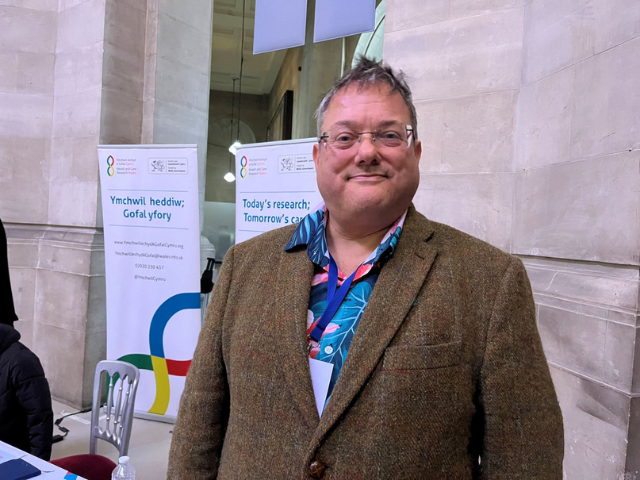
Research finds hospital cancer patients less likely to develop blood clots
12 August
A study funded by Health and Care Research Wales has suggested that cancer patients receiving palliative care in hospitals may be less likely to develop serious blood clots than those in hospices. The findings raise important questions about whether current clot prevention strategies in hospitals are necessary for all patients.
The study, known as HIDDEN2 (Hospital Deep Vein Thrombosis Detection Study in Cancer Patients Receiving Palliative Care), was led by Professor Simon Noble, Marie Curie Professor in Supportive and Palliative Medicine at Cardiff University.
Professor Noble explained that deep vein thrombosis (DVT) may not show symptoms and can often be overlooked. He said: “If left untreated, clots can lead to serious complications, like painful swollen legs, or even a clot travelling to the lungs, causing life-threatening chest pain or difficulty breathing.”
Professor Noble and his team aimed to find out how many palliative care patients in hospital settings actually had DVT and to assess the associated risks.
The research involved more than 200 cancer patients receiving palliative care across three hospitals in south Wales. All patients underwent ultrasound scans of both legs to check for deep vein thrombosis (DVT), a condition where blood clots form in the deep veins. These clots often show no symptoms and which can become life-threatening if they reach the lungs.
Despite concerns about clotting risks, the study identified only one patient with an acute DVT, a prevalence of just 0.6%, which is much lower than the 28% previously reported in similar studies conducted in hospice or specialist palliative care settings.
Professor Noble said: “This low prevalence may suggest that hospital-based palliative care patients could be at much lower risk of developing blood clots than those in hospices. Because of this, we may need to consider whether routine clot prevention is necessary for everyone in this setting.”
He added: “The study highlights the importance of individualised care, rather than assuming all palliative care patients have the same risk. We should consider a more tailored approach, which could help avoid unnecessary treatment while still protecting those who are most at risk.
The findings underscore the importance of personalised care in palliative settings, where treatment decisions must carefully balance potential benefits and burdens.
Professor Noble continued: “The results could inform future decision about how hospitals manage blood clot risks for cancer patients in palliative care, potentially allowing us to focus resources where they are needed most while avoiding overtreatment.”
Aneurin Bevan University Health Board was cited as a sponsor for this study.
Sign up to our weekly newsletter and keep up with the latest research news, funding opportunities and other useful information.